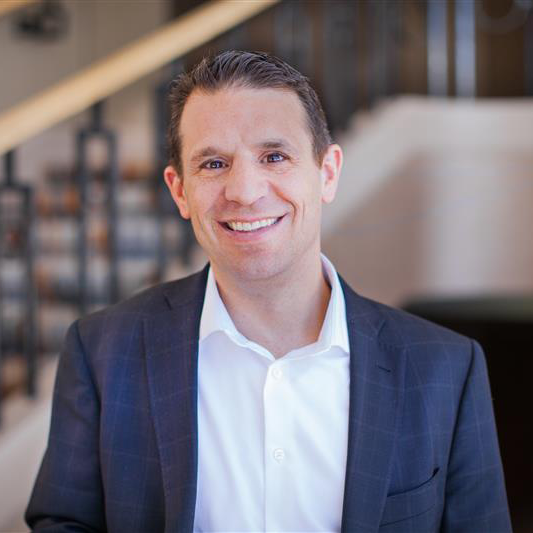Given the significant amount of time it takes to obtain a Certified Human Resources Leader (CHRL) designation, it’s fair to ask: Does it matter? Do a few letters behind your name make a difference to your career prospects, especially in today’s competitive and crowded market?
But the data we’ve uncovered suggests that the answer is yes. There is a strong correlation between HR designations, and better earning potential and career progression, according to our recent report with CPHR:
- Those with an HRPA designation are more likely to hold a job at the management level (53% with vs. 38% without).
- Those with an HRPA designation earn salaries that are on average 19% higher than those without.
- Ontario participants with a designation are also found to be more likely to work in salaried, full-time positions (88% vs. 81% without a designation).
Perhaps more importantly, HR designations, like the CHRL, prove to employers, clients and peers that you have the expertise needed to excel in the profession, have made a commitment to the profession, and have the knowledge required to help protect the public interest.
It basically confirms you provide value.
For CHRL designation holders specifically, it comes with the expectation that leaders and employees can turn to you for insights and business solutions – especially in the face of tough situations (like the pandemic).
Undoubtedly, becoming CHRL certified leads to a ton of benefits, both on a personal and professional front, but to better understand its impact and value, the HRPA caught up with Jeff Desbiens, CHRL, Vice-President, Broker Assist Centre at Economical Insurance, and David Montgomery, B.Comm., CPA, CA, CHE, CHRL (ret.), C.Dir. As two people who entered the HR profession mid-career, they discussed their CHRL designations and how the certification has affected their career trajectories for the better.
Q: Can you tell us about your career background and HR journey?
Desbiens: In my career, I have been incredibly fortunate to have a wide variety of opportunities over 19 years at one organization. The current role I am in is Vice-President of the Broker Assist Centre at Economical Insurance (BACEI) leading the team that supports our broker partners across the country.
Prior to moving into my current role in operations in 2019, I had spent the previous 17 years in Human Resources in various roles or leading teams accountable for training, recruitment, employee relations, organizational development, payroll and HR systems.
Throughout my professional journey I have supplemented my practical experience with education, achieving my CHRL designation in 2008 and completing my MBA in 2016.
Montgomery: I began my career in public accounting but after seven years I transitioned into health care where I spent the next 30 years, the last 10 years as a hospital CEO.
Having responsibility for employees is an enormous responsibility and not only did the CHRL designation support the advancement of my career, I’m certain I would never have become a CEO without it.
Q: Why did you decide to attain your CHRL designation?
Desbiens: In the early 2000s I decided to focus on building my career as an HR professional. To me, it just made sense to pursue my CHRL designation so I could better understand the theory and best practices of human resource management while I was gaining firsthand experience in different HR roles. It proved to be a great combination as I was able to immediately apply what I was learning through my evening courses while at work during the day. This approach was partially driven by the focus on education in my upbringing as my father worked in the community college system for over 40 years. It was also partially a result of BACEI placing great value on education and being willing to invest in the growth of their employees.
Montgomery: After spending the first 12 years of my career as a Chartered Professional Accountant, I was promoted to a position that included management responsibilities for a multi-professional team of over 40 people. I remember thinking, “Yikes! I had better start learning something about HR!” I returned to McMaster University as a part-time student and for the next few years completed all the requirements necessary to obtain an HR designation. I was able to take back everything I learned in class to the workplace the next day and apply my new knowledge. The curriculum was both inspiring and practical.
Q: What were some of the challenges in getting your designation?
Desbiens: The greatest challenge I faced getting my designation was finding a way to balance the course work with professional and personal commitments. I am sure it is the same for many young professionals today – trying to establish yourself at work while also starting a family. It required lots of early mornings or late nights however, I was quite fortunate to have a strong support network.
Maintaining my CHRL designation has been less of a challenge as I’m able to leverage some of the projects or initiatives that I have at work as well through opportunities presented in my volunteer board role.
Montgomery: After completing my educational requirements, I submitted my application to receive the CHRL designation. My application was atypical as all of my required hours of HR experience were accumulated in an operational department, not in an actual HR department, as I had never worked in an HR department. This could have been a barrier to receiving the designation, but HRPA had an open mind and had no valid reason to deny the designation. So in 2000, they allowed me to pursue the designation without actually having worked in an HR department.
Q: How has the CHRL designation helped you in your career? In protecting employees and businesses?
Desbiens: The CHRL designation has been an incredible benefit to my career. I have learned in my career that protecting employees is a critical element of protecting the business or organization. In taking this perspective, the knowledge and access to resources that I have gained by holding CHRL designation has helped me tailor our people practices, creating an environment where employees can flourish while delivering on the business strategy.
It has helped me with traditional HR practices such recruitment, training and organizational development as well as evolving areas of study and focus such as diversity and inclusion as well as working through the pandemic into a new normal.
It has also helped me transition into my role in operations as I still am working with a team of diverse individuals. The many core principles including performance management (articulated expectations and supporting success) and change management (setting a strategy, motivating change and coaching through the journey) have been as critical to delivering on our objectives as the operational knowledge that I’m building. The skills and knowledge you gain through your CHRL designation is transferable to many facets of your career.
Montgomery: One of the wonderful things about having a CHRL designation is that its benefits are transferrable to just about every workplace in the world. As a hospital CEO, I was able to view every decision, every risk, and every opportunity through the HR lens, thereby equitably balancing the needs of the organization and its employees.
And now, almost 40 years after beginning my first career, I have left the workforce to return to school to begin a new career and am now a student at Trinity College, University of Toronto in the Faculty of Divinity. My hope is to be ordained in the Anglican Church of Canada where, once again, my CHRL designation will be vital for working with employees and a significant volunteer workforce. In this challenging era for the church, my knowledge of and experience in organizational development will hopefully result in the sustainability and growth of the church’s mission. My CHRL designation doesn’t stop giving – that’s the beauty of it.
Q: What would be your advice to others considering or in the process of attaining their CHRL designation?
Desbiens: Approach your CHRL designation as an investment in yourself. There will be immediate benefits you will gain through attaining your designation, however, no matter what path your career takes you the knowledge you gain through attaining and maintaining your designation will always provide value. I can attest to this from lived experience.
Montgomery: If you haven’t yet started to work towards achieving the CHRL designation, start now. If you’ve already started, don’t stop. The CHRL will never let you down. It will always prove your value to any organization and it will be a critical success factor in advancing your career. I wish you every success.
Related Resources:
Learn more about the CHRL designation here.
Interviewee Bios:

Jeff Desbiens
CHRL, Vice-President, Broker Assist Centre at Economical Insurance
Jeff Desbiens is the Vice-President of the Broker Assist Centre at Economical Insurance (BACEI) leading the team that supports broker partners across the country. The Broker Assist Centre provides personal insurance support for their network of broker partners aligned with our innovative Vyne offering.

David Montgomery
B.Comm., CPA, CA, CHE, CHRL (ret.), C.Dir.
David Montgomery is a proud member of HRPA and in addition to earning a CHRL he is also a Chartered Professional Accountant, Certified Health Executive, and a Chartered Director. David worked with KPMG for seven years and was ultimately hired by one of his hospital clients and spent the next thirty years in health care. His passion for Human Resources led him into more and more leadership opportunities and he spent the last ten years of his first career as president and CEO of Haldimand War Memorial Hospital and Edgewater Gardens Long-term Care. Now, a Divinity student at Trinity College in Toronto, he is a candidate for ordination to the Priesthood in the Anglican Church of Canada. David lives in Caledonia with his wife, Kate, and their two daughters, Kyra and Lucy, as well as four cats, two dogs, and a parrot.

Jeff Desbiens
CHRL, Vice-President, Broker Assist Centre at Economical Insurance
Jeff Desbiens is the Vice-President of the Broker Assist Centre at Economical Insurance (BACEI) leading the team that supports broker partners across the country. The Broker Assist Centre provides personal insurance support for their network of broker partners aligned with our innovative Vyne offering.

David Montgomery
B.Comm., CPA, CA, CHE, CHRL (ret.), C.Dir.
David Montgomery is a proud member of HRPA and in addition to earning a CHRL he is also a Chartered Professional Accountant, Certified Health Executive, and a Chartered Director. David worked with KPMG for seven years and was ultimately hired by one of his hospital clients and spent the next thirty years in health care. His passion for Human Resources led him into more and more leadership opportunities and he spent the last ten years of his first career as president and CEO of Haldimand War Memorial Hospital and Edgewater Gardens Long-term Care. Now, a Divinity student at Trinity College in Toronto, he is a candidate for ordination to the Priesthood in the Anglican Church of Canada. David lives in Caledonia with his wife, Kate, and their two daughters, Kyra and Lucy, as well as four cats, two dogs, and a parrot.
